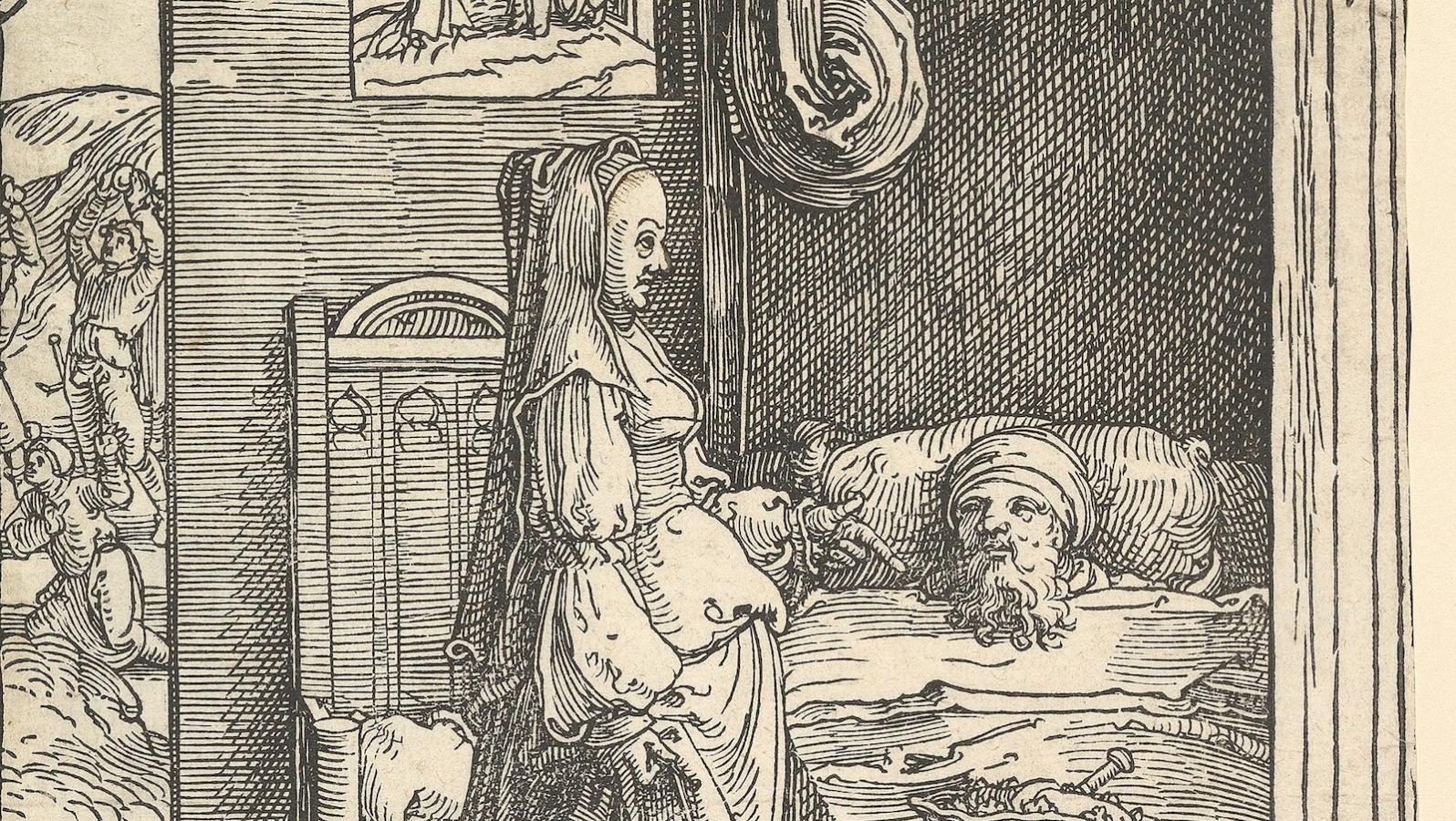The haftarah selection is from Kings I, 18:46-19:21.
The haftarah for Parashat Pinchas features the last, and perhaps most famous, biblical story about Elijah the prophet. Living during the reign of the evil Israelite King Ahab and his even-worse queen, Jezebel, Elijah gained a reputation for working miracles and crusading against idolatry. The haftarah begins just after Elijah has slaughtered 450 worshipers of Ba’al.
Jezebel gets word of the massacre Elijah perpetrated, and she is furious. She vows that on the very next day Elijah’s fate will be the same as those he killed. Frightened, Elijah runs for his life. He stops under a bush in the wilderness, feeling defeated. “Enough! Lord, take my life, for I am no better than my fathers,” he mutters in despair (19:4).
Elijah falls asleep but is awakened by an angel urging him to eat cake and drink water which had just miraculously appeared at his side. Elijah eats, but again he falls asleep. The angel is persistent and wakes Elijah a second time, telling him to eat and drink because there is a long journey ahead of him.
With your help, My Jewish Learning can provide endless opportunities for learning, connection and discovery.
Elijah in the Wilderness
With the strength he gained from that meal, Elijah walks for 40 days in the wilderness, to the mountain of God at Horeb. He finds a cave there and spends the night.
While asleep in the cave, God appears to Elijah and asks him a powerful, existential question: “Why are you here, Elijah?” (19:9)
Elijah responds with a monologue defending his zealotry: “I am moved by zeal for the Lord, for the Israelites have forsaken Your covenant, torn down Your altars, and put Your prophets to the sword. I alone am left, and they are out to take my life” (19:10).
Instead of replying directly to Elijah’s claim, God takes Elijah out of the cave and shows him some miracles. First God sends a mighty wind, splitting mountains and rocks–but, the text tells us, God was not in the wind. Then God creates a forceful earthquake. Again the text specifies that God was not in the earthquake. Then God sets a powerful fire–but, once again, we learn that the fire did not contain God’s presence. Finally, God brings about a still, small voice.
“Why are you here, Elijah?” (19:13)–God poses this question a second time. But Elijah is unchanged even after experiencing the wind, earthquake, fire, and small voice. He responds to God’s question with precisely the same self-important words he used before: “I am moved by zeal for the Lord, for the Israelites have forsaken…I alone am left…” (19:14).
In Elijah’s unchanged response, we can see the tragedy of his life. The still, small voice had been God’s attempt to teach Elijah that zealotry and grand miracles are not always the best way to serve God’s purpose. But Elijah is a man who only knows to act with fire and brimstone; he could not learn the lesson.
In the final verses of the haftarah, God has Elijah appoint a new king in Aram, a new king in Israel, and a new prophet in Israel–Elisha. By appointing Elisha, Elijah effectively surrenders his position as prophet. At the end of the haftarah, when Elisha asks to kiss his parents goodbye before following Elijah, we are left hopeful that perhaps Elisha will embody a more human, balanced kind of leadership for Israel.
Connection to Parashat Pinchas
Pinhas and Elijah are, famously, the Bible’s two zealots for God. Elijah describes himself as a zealot in this week’s haftarah, and the Torah text describes Pinhas as a zealot for bringing a bloody end to the public copulation of the Israelite man and the Midianite woman. Though the Torah seems to support Pinhas’ zealotry, perhaps the choice of this Elijah story as haftarah is meant to remind us that zealotry is not always the best approach.
Some Jewish traditions not only compare these two personalities, and actually go so far as to say that Pinhas and Elijah were the same person. Since the Torah never reports on Pinhas’ death, and Elijah is described as going up in a chariot to heaven, but not actually dying, it has been suggested that neither really died, and that Elijah was a later incarnation of Pinhas. This could explain their shared characteristics, as well as the choice of this haftarah for Parashat Pinhas.
Torah
Pronunced: TORE-uh, Origin: Hebrew, the Five Books of Moses.



